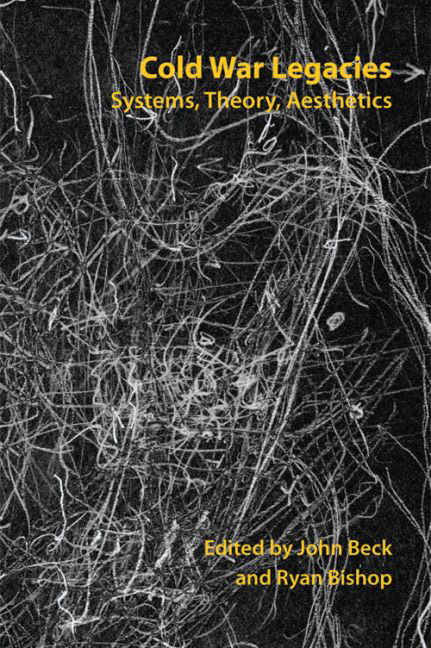Book contents
- Frontmatter
- Contents
- List of Figures
- Series Editors’ Preface
- Acknowledgements
- Notes on Contributors
- Introduction: The Long Cold War
- I PATTERN RECOGNITION
- II THE PERSISTENCE OF THE NUCLEAR
- 4 The Meaning of Monte Bello
- 5 Deep Geological Disposal and Radioactive Time: Beckett, Bowen, Nirex and Onkalo
- 6 Shifting the Nuclear Imaginary: Art and the Flight from Nuclear Modernity
- 7 Alchemical Transformations? Fictions of the Nuclear State after 1989
- III UBIQUITOUS SURVEILLANCE
- IV PERVASIVE MEDIATIONS
- Index
4 - The Meaning of Monte Bello
from II - THE PERSISTENCE OF THE NUCLEAR
Published online by Cambridge University Press: 10 May 2017
- Frontmatter
- Contents
- List of Figures
- Series Editors’ Preface
- Acknowledgements
- Notes on Contributors
- Introduction: The Long Cold War
- I PATTERN RECOGNITION
- II THE PERSISTENCE OF THE NUCLEAR
- 4 The Meaning of Monte Bello
- 5 Deep Geological Disposal and Radioactive Time: Beckett, Bowen, Nirex and Onkalo
- 6 Shifting the Nuclear Imaginary: Art and the Flight from Nuclear Modernity
- 7 Alchemical Transformations? Fictions of the Nuclear State after 1989
- III UBIQUITOUS SURVEILLANCE
- IV PERVASIVE MEDIATIONS
- Index
Summary
King George VI – Britain's last pre-nuclear monarch – died on 6 February 1952. By the time Elizabeth II was crowned, in June of the following year, the United Kingdom had become an atomic power. Operation Hurricane, the first British atom bomb test, took place on 3 October near the Monte Bello islands in Western Australia, marking not only the success of Britain's nuclear ambitions but a key moment in Commonwealth relations. Its success depended upon an extensive international infrastructure of uranium mines, laboratories, reactor piles, depots and proving grounds. Yet most accounts of British Cold War culture have tended to obscure rather than illuminate the detail of that global effort. If the Manhattan Project quickly took on the shape of an ‘origin myth’ for atomic-age America, its British counterpart has remained stubbornly unmythological (Hales 1992: 251). Or so it might appear. In this chapter, I want to challenge that idea by drawing attention both to the energetic programme of official nuclear self-fashioning that accompanied the British atomic bomb project, and to some of the complex imaginative fictions of the time that responded to the possibility of a nuclear war involving Britain. My main claim will be that both kinds of narrative, official and unofficial, are best understood not by comparison with American cultural production, but in light of strenuous efforts during the 1950s to consolidate the Commonwealth of Nations under the British nuclear umbrella. Those efforts had begun at the end of the Second World War, when America withdrew support for the British nuclear programme, and continued until 1958, when – following Britain's successful production of the hydrogen bomb – transatlantic nuclear links were renewed.
In the intervening years, Commonwealth co-operation was essential to British nuclear policy. ‘In the research and development phase’, notes the defence historian Wayne Reynolds, ‘Britain attempted the integration of the Commonwealth in its own Manhattan programme. Apart from the well-known role of rocket and atomic testing, the Commonwealth provided the all important ingredients for the bomb formula – scientific manpower plus materials’ (Reynolds 1996: 122). Those ingredients – uranium, skilled labour, vast tracts of ‘empty’ space – were not readily available elsewhere. In 1946, despite Churchill's confidence that the British contribution to the Manhattan Project was ‘a happy augury for our future relations’, the United States had passed the McMahon Act, reversing wartime agreements on nuclear collaboration (‘First Atomic Bomb Hits Japan’, p. 4).
- Type
- Chapter
- Information
- Cold War LegaciesLegacy, Theory, Aesthetics, pp. 85 - 101Publisher: Edinburgh University PressPrint publication year: 2016



